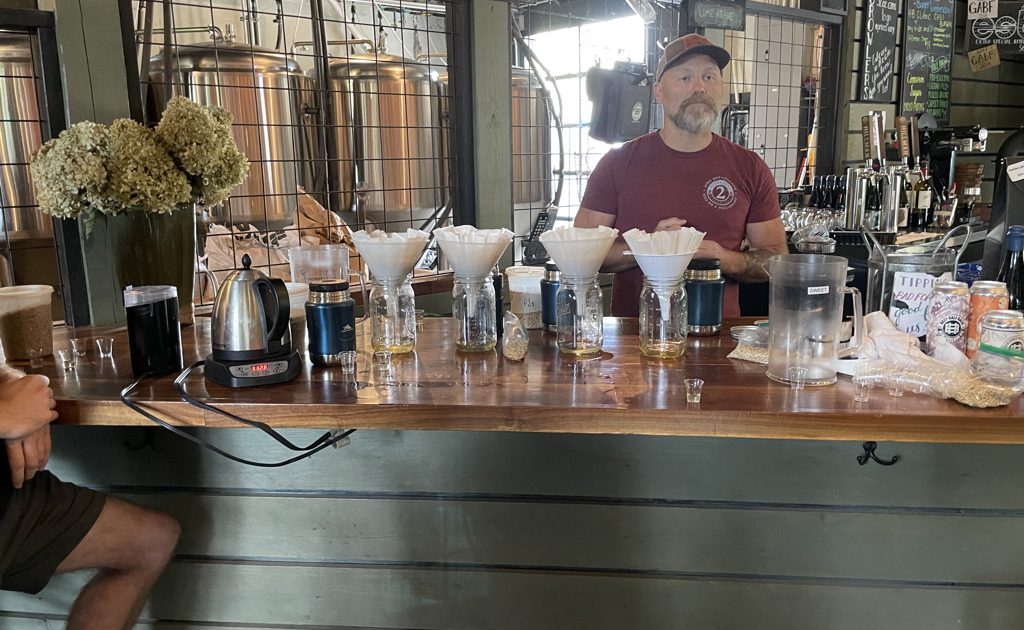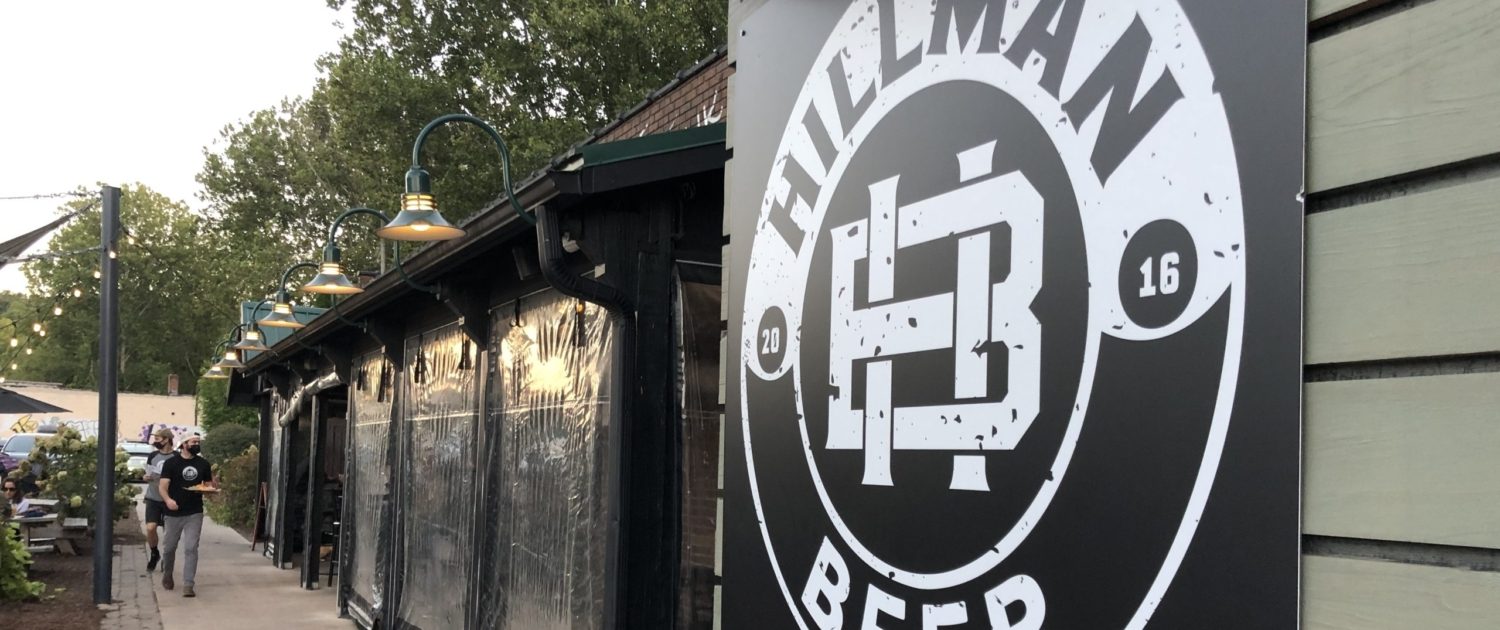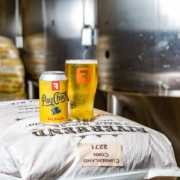Craft Malt Converts: Hillman Beer Company
Hillman Beer Company
If we had a nickel for every conversation we had with small batch producers about why craft malt is the sustainable, marketable choice for ingredient purchasing… well let’s just say we’d have a lot of nickels.
Enter a hot steep demonstration that we’ve fondly coined the “craft malt pepsi challenge” in which we compare the flavor profile of Riverbend malt to that of larger commodity brands. The contrast is stark.
A couple weeks back, we engaged in this hot steep juxtaposition with long-time Riverbend customer Hillman Beer Company who we’re pleased to report just made the switch to Riverbend as its primary base malt provider. Hillman has always had around 15 percent of the beers on their board made with our malts, and it’s an honor to say that number has jumped to around 85 percent.
“We love having Riverbend as neighbors,” says Co-Founder Brad Hillman. “We love that we can say all the malt is grown within 500 miles from Asheville. For customers, it’s cool to know that your beer is grown locally. It’s also cool to know you’re supporting local farmers. There are so many different things to be proud of here.”
In April of this year, Hillman joined the Craft Malt Certified™ seal, a pledge to purchase ten percent or more craft malt as part of total annual malt purchases. That was a no-brainer for Hillman, who is already using Riverbend’s Chesapeake Pilsner for their Kölsch and Old Fort Original Lager, and pretty much any other beer that requires Pilsner malt,” Brad adds. He uses Riverbend’s Southern Select as a “nice in-between base malt between Pilsner and Marris Otter,” and Streaker Oats make their appearance in many of Hillman’s Belgian-inspired and sour beers.
Next up for Hillman is an Amber Rye Lager made with Riverbend’s Carolina Rye malt and Munich Rye malt varieties, releasing in mid-December.






